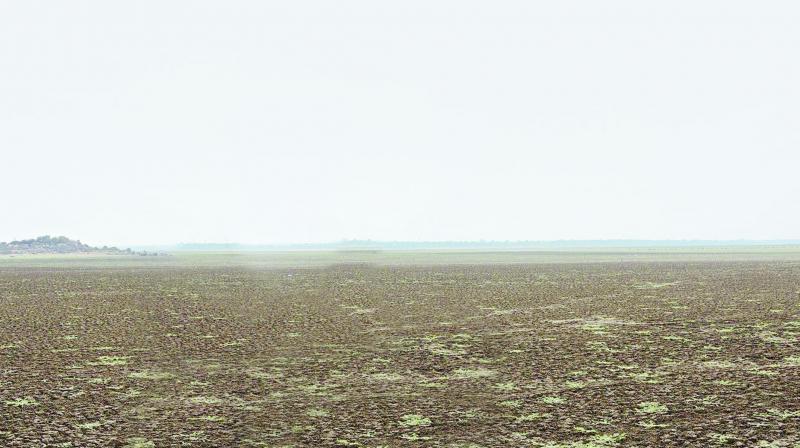Increase in atmospheric CO2 affects crop and humans health
Iron, zinc concentrations fall, give rise to deficiencies, disabilities.

Hyderabad: Increasing atmospheric carbon dioxide is decreasing iron and zinc concentrations in crops and will increase the burden of disability by 2050, according to a study published about climate change and impact on crops by PLOS journal.
The rising atmospheric carbon dioxide is anticipated to decrease zinc and iron concentrations in soil and plants, which will have an impact on the micro-nutrients that are required by the human body. The estimations were taken from 137 countries across the world where the impact of climate change, crop nutrient concentrations, dietary patterns and disease risk were evaluated.
It is estimated that there are already 1,972.9 million disability adjusted life years (DALY's) globally and this deficiency will add an additional 125.8 million DALY's globally.
According to nutritionist Dr Janaki P. Srinath, “The climate change impact is being seen in plants, animals and also in marine life. Hence, a deficiency in the food chain affects the complete chain. In humans, the prospective impact has been studied from time to time and experts are examining what kind of deficiencies is likely to emerge.”
“Zinc is required for building the immune system and iron for making red blood cells that carry oxygen to the various parts of the body. Hence, the deficiencies in plant life culminate into deficiency in animals and humans. But this will have to be re-examined from time to time,” Ms Srinath said.
The traditional public health interventions for zinc and iron supplementation are being carried out in healthcare.
There is also supplementation added to the soil so that the crop yield is improved.
P.V. Sateesh, national convener, Millet Network of India, said, “There is now stress on soil testing to understand the strength and the nutrients that it possesses. The impact of climate change is worst on small farmers whose crop cultivation gets affected due to erratic weather conditions.”
That the food consumption patterns can change with climate change is the presumption from the various studies that have been carried out from time to time.
Behaviour of insects affected
The increasing carbon dioxide level in the atmosphere affects the life of insects too. Mosquitoes are found to rely on carbon dioxide to detect and find their blood hosts. Various studies show that the host seeking behaviour of mosquitoes that attacks human body changes with the CO2 concentration levels.
The proliferation of female mosquitoes is high in the CO2 concentrated zones and that will mean that the public health systems will have to be strengthened as there can be outbreaks of mosquito related diseases.
The burden of malaria is estimated to increase by 15.7 per cent, pneumonia by 3.2 per cent and diarrhea by 0.5 per cent by 2050 in the world.
H2

